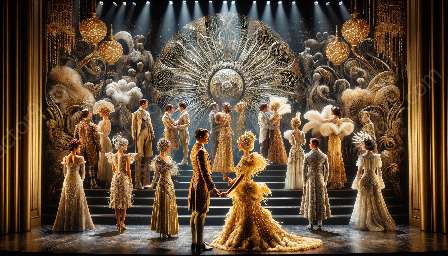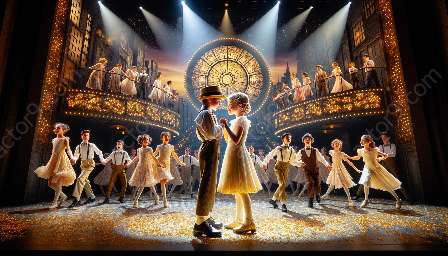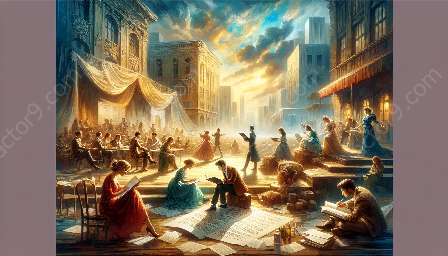While Broadway musicals are celebrated for their entertainment value and artistic expression, they often intersect with complex social issues. One such issue is the ethical implications of cultural appropriation within the realm of musical theater. In this discussion, we delve into the multifaceted nature of this topic, its impact on diverse cultures, and its relevance to social issues.
Cultural Appropriation: Understanding the Concept
To comprehend the ethical implications of cultural appropriation in musical theater, it is crucial to understand the concept itself. Cultural appropriation occurs when elements of a minority culture are adopted by members of a dominant culture without understanding or respecting the cultural significance behind them. In the context of musical theater, this can manifest in various forms, such as the misrepresentation of cultural traditions, costumes, or music, often for commercial gain.
Challenges in Broadway Musicals
Broadway, as a prominent platform for musical theater, has faced scrutiny regarding cultural appropriation. While the industry has showcased a wide array of productions that celebrate diversity and inclusivity, there have been instances where cultural elements have been used without proper acknowledgment or understanding. This poses ethical dilemmas as it can perpetuate stereotypes and diminish the authenticity of the cultural traditions being portrayed.
Relevance to Social Issues
The ethical implications of cultural appropriation in musical theater have significant relevance to social issues. The portrayal of diverse cultures on stage can impact societal perceptions and contribute to the reinforcement of harmful stereotypes. Moreover, it can marginalize and overshadow the voices of artists belonging to the cultures being appropriated, leading to a lack of representation and recognition within the industry.
Respecting Cultural Diversity
Addressing these ethical implications requires a concerted effort to respect and celebrate cultural diversity. This involves engaging in meaningful collaborations with artists from diverse backgrounds, ensuring that cultural elements are portrayed with authenticity and integrity, and acknowledging the importance of accurate representation. Additionally, fostering open dialogues and education within the industry can lead to greater awareness and sensitivity towards issues of cultural appropriation.
Impact on Diverse Cultures
The impact of cultural appropriation in musical theater extends beyond the stage and can deeply affect the communities from which these cultural elements originate. Inaccurate or insensitive portrayals can contribute to cultural erasure and perpetuate harmful narratives, leading to the misrepresentation of entire cultures. Recognizing and addressing these implications is essential for fostering a more inclusive and respectful environment within the realm of Broadway and musical theater.
Conclusion
The ethical implications of cultural appropriation in musical theater intersect with broader social issues and demand thoughtful consideration. Understanding and addressing these implications is vital for the industry to uphold ethical standards and promote a more inclusive and respectful portrayal of diverse cultures on stage. By engaging in meaningful dialogue, fostering authentic representation, and respecting cultural diversity, Broadway can navigate this complex terrain and contribute to positive societal change through its powerful platform.



































